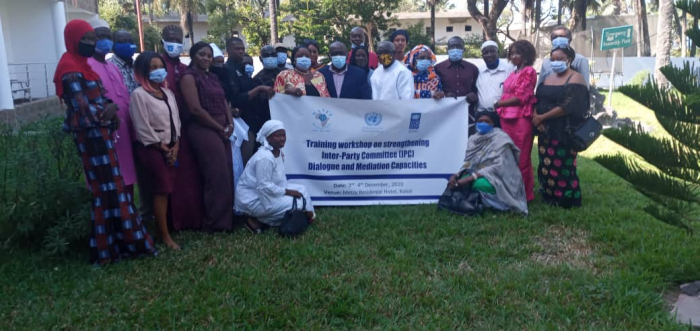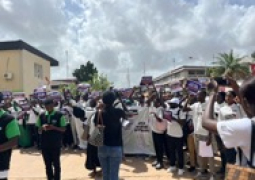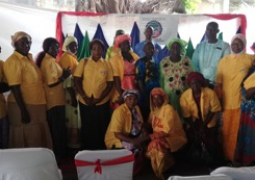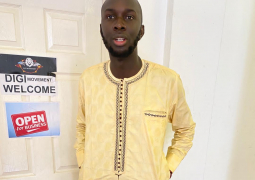
The training, which attracted 16 political parties, was organized by WANEP-Gambia with funding from UNDP.
Welcoming participants, Salami Njie, national coordinator WANEP Gambia, reminded that even though the current government embarked on reforms and adopted a National Development Plan in 2018, the objective to deliver good governance and accountability, social cohesion and resuscitating the fragile economy is being hindered by the heightened political polarisation and inter-wrangling in the country.
She indicated that the transitional period has been a smooth one, further arguing that a legacy of institutional dysfunction, over centralised governance with limited participation andaccountability, continue to fuel division, fear not to talk of ethnic politicisation.
The nation, he observed, is still fractured and fragmented along party, ethnic and regional lines.
“The heightened political tensions in the country have also taken ethnic and regional dimensions. The issue of ethnicity is deeply entrenched and visible in the body politic of the country with antecedents in previous election periods.”
She also cited that the political tensions are spilling over into violence and public disorder as evident in the previous parliamentary and local elections, respectively.
These intra and inter-party frictions and fractures, she added, are manifestations of weak institutions and waning public trust in the government to consistently hold the nation together.
A key challenge therefore, she went on, is how to foster social cohesion, stability and national consensus on issues of public interest.
“This bespeaks the need to promote trust and confidence building, dialogues and mediation as responses to the emerging security threats and potentially violent elections in the future.”
She said it is in the light of the above that the UNDP through the peace building fund in collaboration with WANEP- The Gambia deemed it fit to organise the training as part of series of engagements to strengthen dialogue and mediation skills of members of the IPC with a focus on how to help coordinate relationship.
This, she believed, would create more dialogue among members of political parties for the resolution of politically motivated conflicts, delivered through engagements and dialogue efforts as the inter-party committee IPC can help coordinate relationships and serve as a dialogue forum amongst Gambia political parties and also holds the potential to reinforce stability and social cohesion.
For his part, Thomas Kimaru, project manager UNDP expressed gratitude to the West African Network for Peaceful-building with support from UNDP through its peace building fund.
The subject of discussion is timely and important as the country prepares for the next electoral cycle:2021/2023.
“In the post-2017 political transition period, political parties have played a key role in the consolidation of democracy and sustaining peace in The Gambia, but ahead of the elections next year, more is expected from political parties especially in promoting dialogue on contentious national issues such as the new draft constitution. The proposed Election Bill 2020, Access to Information Bill, among other draft bills and initiatives.”
Halifa Sallah, chairman of the Inter-Party Committee, presided over the official ceremony.
Read Other Articles In National News
Gambian Diaspora investment increases by 3.42%
Jan 22, 2024, 12:26 PM




